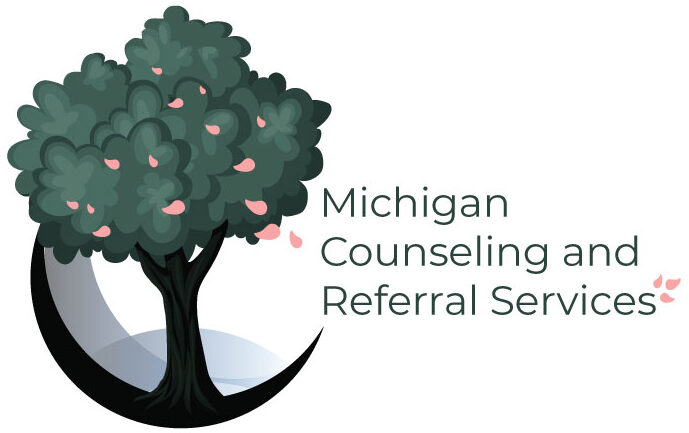Table Of Contents
Videos On Neurodiversity
I figured I have been writing so much on neurodiversity lately, you all probably want to hear other neurodivergent voices touching on the topic. Well, look no further! I have some great videos on neurodiversity that I have found to be very helpful in the past.
Sometimes reading can be a bit under-stimulating. I struggle with this, too. You may need more stimulation for your brain to absorb information better. Don’t feel bad, we all do from time to time!
Videos are great because they are so stimulating to our senses. Combining visual with auditory is a much more fun and engaging way for our neurodivergent brains to access information.
So take a look at some of my favorite youtubers that talk about neurodiversity and give them a follow! I’ve learned a lot about myself and my clients from these videos. I’m sure you can, too!
1. How To ADHD – Videos on Neurodiversity
Jessica from How to ADHD is probably my favorite neurodivergent youtuber! I’m an ADHDer, as well, so i may be a little biased here. But she is a fantastic advocate for neurodiversity with quality information!
Sitting at a little more than 1 million subscribers, Jessica has a wide reach with her content. She talks mostly about life as an ADHDer and how to manage it. However, she does a great job of discussing other neurodivergent conditions, as well.
Her TED talk about living with ADHD is also great. Feel free to check it out! She shares her personal story and embeds some neuroscience about ADHD throughout in a way that is fun and engaging.
Overall, Jessica gives a nice and comprehensive overview of neurodiversity as a neurodivergent person. As I have said in other articles, it is important for neurodivergent voices to advocate for themselves.
As neurotypical folx, it is important for you to listen to those of us who are neurodivergent when it comes to helping us succeed. Just like we do not understand what it is like to be neurotypical, you can’t understand what it is like to be neurodivergent.
So let’s meet in the middle, maybe? This is the message from Jessica and other neurodivergent activists. Give us the space to work in the ways that best suit us vs trying to impose your assumptions. This way, we all win!
2. Stephanie Bethany
So this one is fun to watch! Stephanie Bethany is an Autistic youtuber who talks about autism-related topics. She covers a wide variety of topics from how the autistic brain works to her own personal account of being Autistic.
In this video she does a great job of explaining neurodiversity from a societal standpoint. I love her explanation because it’s not overly scientific. These concepts can get a bit muddy at times, especially if you aren’t used to hearing them. Stephanie’s video was for sure easy to follow and be engaged with!
Seeing her talk about neurodivergence in the lens of culture was just music to my ears! I’ve also written on this with broader mental illness if you’d like to take a look!
The most important part of Stephanie’s work, however, is that she’s an autistic person speaking for herself. Sure, you can read from me as an ADHDer or academic articles about neurodiversity and likely get a good layout of information.
But there is something to be said of hearing about neurodiversity from more than academic or professional folx like myself. I want you to get the clearest picture possible. That means it will be important for you to hear about neurodiversity from, well, a diverse group of voices!
3. Autistamatic – Videos on Neurodiversity
I won’t lie, this one is a little dryer than the last two videos. That doesn’t mean the information isn’t great! Plus, there’s some great artistry and colors that make it easy to stay engaged.
Despite the actual video format, what I like best with this video is the metaphor it presents. Autistamatic uses a great example of hats and how hats are different. Hats are representing different neurotypes like neurotypical brains (blue) and other colors to represent neurodivergent neurotypes.
I can say for myself that metaphors help me internalize information better. It may feel a bit goofy to some, but this really simplifies neurodiversity!
This is also a great way to explain neurodiversity to kids. Again, metaphors are great ways to teach neurodivergent and neurotypical brains complex ideas.
Imagine using this video in a classroom with kiddos and giving everybody a different hat to drive the point of diversity. Sounds like fun, right? I would’ve loved something like this even in graduate school!
4. Dr. Tamara Soles
And speaking of kiddos, this video is aimed directly at teaching young kids the concept of neurodiversity. The colors, animals, and animations are all great ways to keep kids engaged with the material. Not to mention it’s short and very easy to digest!
Even for adults, videos like this are important. You should learn material at the most elementary level possible. This makes it so you can remember the material better.
On top of that, the content creator is pretty great, too! Dr. Tamara Soles is a Canadian child and family psychologist. She owns her own therapy practice called The Secure Child Centre for Families and Children based in Quebec.
Also, she has a podcast! Her guests are pretty interesting, as well. Episode 39 is with a therapist from the Geek Therapist community, one that I am very apart of!
So Dr. Sole is connected in all the right ways to the neurodiversity community! Her information is great and she has a wide variety of material relating to children and adults, alike. Be sure to check out some of her stuff!
Conclusion
So this was a quick post just sharing some great videos on neurodiversity. All of these folx are great places to start when learning about neurodiversity. Sometimes words just don’t cut it. Maybe you need some audio and visual stimulation, as well!

Be sure to use these videos and artists to enhance your understanding of neurodiversity. All of these content creators have fantastic material even beyond the videos in this article. The more you learn the better you can understand about yourself and your neurodivergence!
There really is a great plethora of information out there from blogs to youtube to academic articles and much more. The most reliable of these info sources are neurodivergent voices. Online forums and groups are other great places to find information from neurodivergent voices.
Above all else, there’s a plethora of videos on youtube and throughout the web about neurodiversity. Make sure to check them out!!
Contact Me Directly!
All inquiries are responded to within 1-3 business days from inquiry. Feel free to use my contact information tomorrow to leave a message!
Hours: Monday-Thursday 12-7pm
Phone: (269) 350-3470
Email: info@michigancrs.com
Location: 1451 East Lansing Dr., Suite 219
East Lansing, MI 48823
